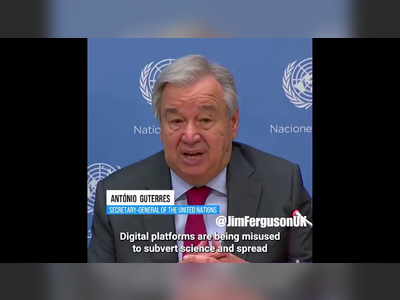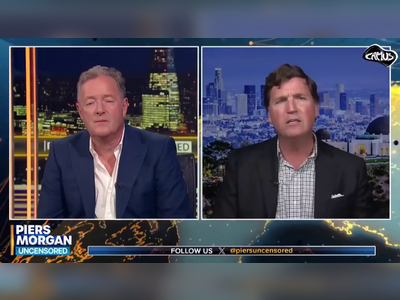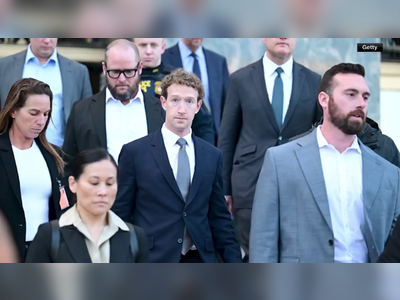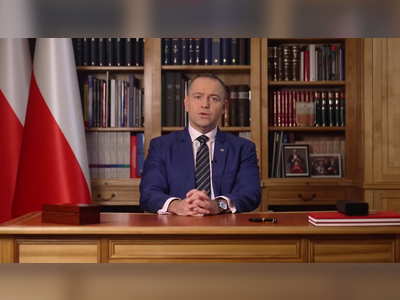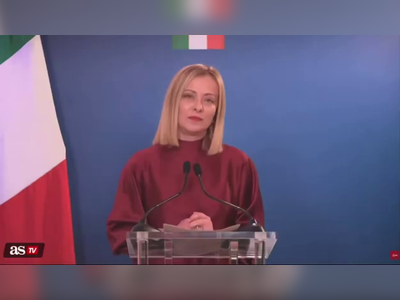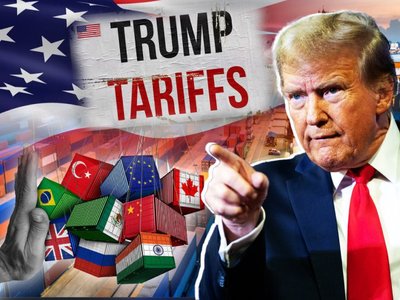In Washington's Shadows, the Influence of 'President Musk' Looms Large as Budget Crisis Deepens
Trump and Musk's Intervention Derails Bipartisan Efforts, Pushing U.S. Government Towards Shutdown
The specter of an imminent government shutdown hangs over Washington, casting a pall on America's political landscape as the holiday season approaches.
Driven by the influence of Donald Trump and the shadow leadership of his ally, tech titan Elon Musk, Republican lawmakers have unexpectedly withdrawn support for a bipartisan agreement to extend federal funding.
The consequence of this impasse could see hundreds of thousands of federal employees unpaid and the closure of national parks and museums, while essential services like defense and law enforcement continue unfettered.
The political theatre in Washington shows the deep fissures even before Trump formally resumes office.
Musk, who Trump controversially appointed to streamline government spending, wielded his influence with a late-night tweetstorm, denouncing the bill as 'outrageous' and a 'monstrous crime.' He chastised lawmakers for purported excesses in the bill, alleging it included unwarranted financial support for Ukraine and funding for a new American football stadium in the nation's capital—claims refuted by officials from both parties.
The collapse of the compromise, brokered by House leader Johnson, leaves Republicans scrambling to formulate an alternative.
Their revised proposal, which eliminated their own salary increases and adopted Trump's proposition to abolish the debt ceiling until 2027, met fierce Democratic resistance.
Skeptical of Trump's motives, Democrats worry the relaxed borrowing limits would be funneled into tax cuts for the wealthy.
Democratic Leader Jeffries dismissed the proposal outright, igniting impassioned discourse over what constitutes a 'serious' plan.
In a remarkable twist, even staunch conservatives within Trump's ranks balked at the prospect of unchecked federal borrowing, citing concerns over burgeoning deficits.
This division resulted in a stark defeat for Johnson, whose new plan failed 174 to 235.
The tension within Republican ranks fuels speculation about Johnson's future leadership role amid suggestions of Musk's potential entry into the political fray—a possibility despite him not being a sitting member of Congress.
Meanwhile, Democrats savagely critique Musk's escalating influence, dubbing him the 'real power' behind Trump's ostensibly disenchanted façade.
The opposition posits Trump as merely a marionette, dubbed mockingly as a puppet of 'President Musk.'
As negotiations reach a critical juncture, Democratic Senators propose reverting to the original bipartisan agreement, indicating that cooperation might be the only route to averting what could be a disastrous shutdown reminiscent of 2018's record 34-day stalemate under Trump's bid for a border wall with Mexico.
The unfolding crisis highlights the fragility of bipartisan collaboration and the unpredictable sway of private interests in public governance, promising a contentious prelude to Trump's return and prompting urgent calls for resolution.
Driven by the influence of Donald Trump and the shadow leadership of his ally, tech titan Elon Musk, Republican lawmakers have unexpectedly withdrawn support for a bipartisan agreement to extend federal funding.
The consequence of this impasse could see hundreds of thousands of federal employees unpaid and the closure of national parks and museums, while essential services like defense and law enforcement continue unfettered.
The political theatre in Washington shows the deep fissures even before Trump formally resumes office.
Musk, who Trump controversially appointed to streamline government spending, wielded his influence with a late-night tweetstorm, denouncing the bill as 'outrageous' and a 'monstrous crime.' He chastised lawmakers for purported excesses in the bill, alleging it included unwarranted financial support for Ukraine and funding for a new American football stadium in the nation's capital—claims refuted by officials from both parties.
The collapse of the compromise, brokered by House leader Johnson, leaves Republicans scrambling to formulate an alternative.
Their revised proposal, which eliminated their own salary increases and adopted Trump's proposition to abolish the debt ceiling until 2027, met fierce Democratic resistance.
Skeptical of Trump's motives, Democrats worry the relaxed borrowing limits would be funneled into tax cuts for the wealthy.
Democratic Leader Jeffries dismissed the proposal outright, igniting impassioned discourse over what constitutes a 'serious' plan.
In a remarkable twist, even staunch conservatives within Trump's ranks balked at the prospect of unchecked federal borrowing, citing concerns over burgeoning deficits.
This division resulted in a stark defeat for Johnson, whose new plan failed 174 to 235.
The tension within Republican ranks fuels speculation about Johnson's future leadership role amid suggestions of Musk's potential entry into the political fray—a possibility despite him not being a sitting member of Congress.
Meanwhile, Democrats savagely critique Musk's escalating influence, dubbing him the 'real power' behind Trump's ostensibly disenchanted façade.
The opposition posits Trump as merely a marionette, dubbed mockingly as a puppet of 'President Musk.'
As negotiations reach a critical juncture, Democratic Senators propose reverting to the original bipartisan agreement, indicating that cooperation might be the only route to averting what could be a disastrous shutdown reminiscent of 2018's record 34-day stalemate under Trump's bid for a border wall with Mexico.
The unfolding crisis highlights the fragility of bipartisan collaboration and the unpredictable sway of private interests in public governance, promising a contentious prelude to Trump's return and prompting urgent calls for resolution.


